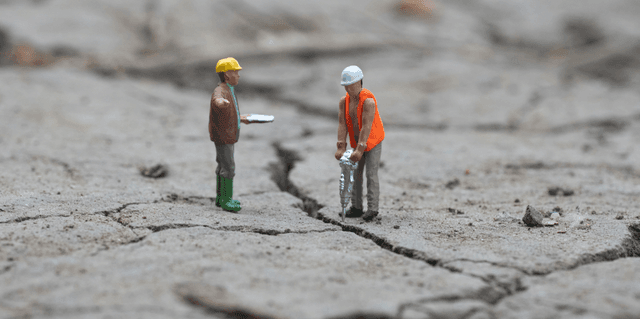
The Role of AI in Managing Risk in Frontline Industries
Frontline industries like shipping, manufacturing, aviation, and energy deal with some of the most challenging work environments. Safety, efficiency, and operational continuity are crucial, and the stakes are high when these areas aren’t managed effectively. Artificial Intelligence (AI) is emerging as a game-changer in these industries, providing new ways to identify risks, prevent accidents, and streamline operations.
By leveraging AI, organisations can shift from reactive measures to predictive strategies, addressing risks before they escalate. This transformation reduces workplace hazards and builds a stronger, more resilient workforce.
Why AI is Critical for Risk Management
The fast pace and high-pressure nature of frontline industries leave little room for error. Human oversight or delayed response to risks can lead to costly disruptions—or worse, loss of life. AI brings a proactive edge by identifying patterns and potential issues that may go unnoticed in traditional systems.
Consider this: Studies reveal that predictive systems powered by AI can reduce workplace incidents by nearly 30%. In addition to saving lives, these tools minimise equipment downtime and enhance operational reliability, which translates to better financial outcomes for businesses.
How AI is Changing Risk Management in Frontline Roles
AI applications in frontline industries are diverse, addressing risks from multiple angles. Here’s how it’s being used effectively:
Proactive Equipment Monitoring
In manufacturing and aviation, machines and equipment must operate without failure. AI systems can analyse data from sensors and detect signs of wear or malfunction well before they cause breakdowns. This approach not only reduces maintenance costs but also prevents dangerous failures.
Tracking Human Fatigue and Alertness
Fatigue and distractions are leading causes of workplace accidents. AI-powered wearables or monitoring systems can assess worker behaviour, identifying when someone might need rest or extra support. This has been particularly effective in sectors like logistics, where driver-related incidents have been reduced significantly.
Identifying Environmental Hazards
In industries like oil and gas, real-time sensors connected to AI systems detect dangers such as gas leaks or fluctuating pressure levels. Early detection allows for immediate action, preventing small issues from becoming catastrophic.
Improved Workforce Readiness
AI isn’t just about machines. It’s also being used to monitor the mental and physical well-being of workers. Regular assessments help predict stress or burnout and ensure employees are fit to perform their roles safely.
Adaptive Risk Assessment
Unlike static risk models, AI evolves as conditions change. In maritime operations, AI tools continuously analyse weather, cargo weight, and crew preparedness to adjust safety measures dynamically.
What’s Next for AI in Frontline Industries?
AI is not just about replacing manual processes—it’s about creating smarter systems that adapt to the needs of high-risk workplaces. As industries adopt AI, we see improvements in workplace safety, efficiency, and employee morale. This shift is not just about technology; it’s about building a culture that values proactive safety measures and continuous improvement.
Are You Using AI to Protect Your Workforce?
The technology to reduce risks, improve safety, and build resilient teams is available now. The real question is whether your organisation is making the most of it. Are you equipping your teams with the right tools to prevent accidents and improve operations?
If not, it’s time to explore how AI can transform your workplace. Get in touch to learn how these solutions can help you create a safer and more efficient future for your organisation.
- Industry

The Buzz Around Workplace Safety Is Real — Here’s Our Take
April 28 marked World Day for Safety and Health at Work, and the buzz has been impossible to ignore. This year’s theme — “Revolutionising Health and Safety: The Role of AI and Digitalisation at Work” — resonates across sectors. However, in one industry in particular, it couldn’t be more urgent: the maritime sector. At Bigyellowfish, […]

Tackling Fatigue in Safety-Critical Industries: A Call for Action
Fatigue is more than just feeling tired—it’s a state of physical, mental, and emotional exhaustion that can impact anyone. In safety-critical industries, where precision and focus are non-negotiable, the effects of fatigue can be disastrous. Mistakes, accidents, and decreased productivity are just a few of the outcomes. Yet, fatigue is often overlooked until it’s too […]

 Workplace Well-being
Workplace Well-being Reinforced Learning
Reinforced Learning Collaboration
Collaboration